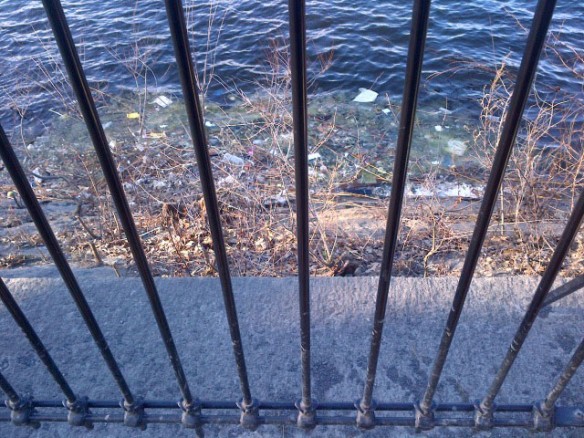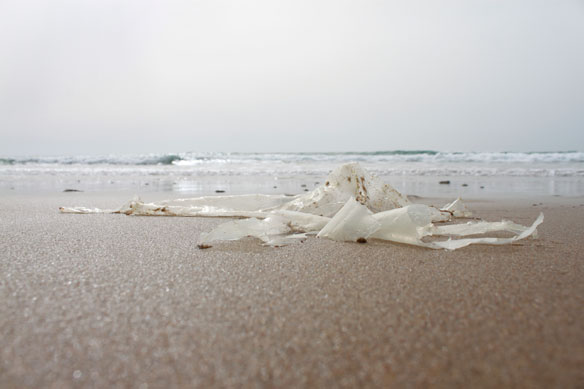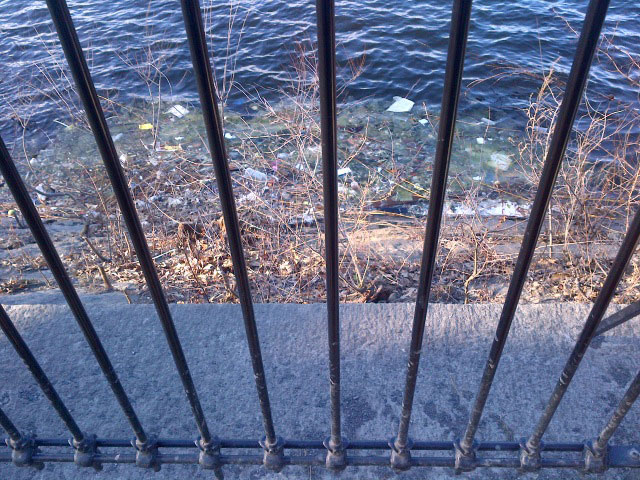
“The unprecedented plastic waste tide plaguing our oceans and shores, can become as limited as our chosen relationship with plastics, which involves a dramatic behavioral change on our part…”
Captions and Photo: © SAF — Coastal Care
Excerpts;
Plastic bags will be banned in France from July 1. The ban on plastic bags will come into effect in two stages: on July 1, 2016 for “lightweight” shopping bags and January 1, 2017 for packaging bags for fruit and vegetables.
France is a pionneer but not the first EU Country to impose the ban. Italy started to ban single-use plastic bags back in 2012…
Novamont unveils new compostable bioplastic bag, (07-01-2016)
Italian bioplastics firm Novamont has teamed up with and French plastic films manufacturer Barbier Group to develop a new kind of bioplastic lightweight bag for fruits and vegetables…
as an alternative to traditional non-biodegradable and non-compostable plastic packaging.
VIDEO News: From plastic bags, to hydro biodegradable bags, LC1 (In French)
Blueplast, a vegetable based plastic replacement, hydro-biodegradable in ocean and rivers, SPHERE PTL (In French)
Blueplast se présente comme une solution qui répond à la pollution des océans par des plastiques, en se bio-dégradant intégralement et rapidement au contact des eaux de rivière, de lac ou de mer, sans impact sur la biodiversité, assure Harald Schmidt, directeur R&D de Biotec, le laboratoire de recherche et de développement de SPhère. Ce nouveau bioplastique hydro-biodégradable est produit à base de ressources végétales.
Destiné aux films et à la sacherie (sacs de caisse, sacs fruits et légumes…), ce plastique se bio-dégrade dans les espaces marins (mers, lacs et rivières), sous l’action des microorganismes présents dans ces eaux, dans des délais assez courts : entre un et deux ans au maximum, selon le temps, la température, et la nature de la faune présente dans l’eau…
A Designer Unites the Basque Country, The New York Times (06-09-2016)
Mr. Iratzoki won plaudits for designing one of the world’s first bioplastic chairs made of a biodegradable plant-based polymer…
EU Confirms Plastic Bag Reduction, European Parliament News (11-24-2014)
The new EU law will require governments to cut annual use of lightweight plastic bags. This represents a reduction from current use of 50% by the end of 2019 and 80% by the end of 2025. This is an historic moment for all of Europe…
Plastic Waste Causes $13 Billion In Annual Damage To Marine Ecosystems, UN
Concern is growing over widespread plastic waste that is threatening marine life – with conservative yearly estimates of $13 billion in financial damage to marine ecosystems, according to two reports issued at the inaugural meeting of the United Nations Environment Assembly.
Think You Can’t Live Without Plastic Bags? Consider This: Rwanda Did It, Guardian UK (02-15-2014)
In 2008, while the rest of the world was barely starting to consider a tax on single-use plastic bags, the small East African nation decided to ban them completely…
Biodegradable Plastics Are Not the Answer to Reducing Marine Litter, Says UN; UN News Center (11-23-2015)
Widespread adoption of products labelled ‘biodegradable’ will not significantly decrease the volume of plastic entering the ocean or the physical and chemical risks that plastics pose to marine environment, concluded a UN report released today…
Biodegradable Plastics Are as Persistent as Regular Plastics, Study Finds, Yale E360 (03-19-2015)
Plastics designed to degrade don’t break down any faster than their conventional counterparts, according to research published in the journal Environmental Science and Technology…
Plastic Pollution: “When The Mermaids Cry: The Great Plastic Tide,” Coastal Care

For more than 50 years, global production and consumption of plastics have continued to rise. An estimated 300 million tons of plastics were produced in 2015, confirming and upward trend over the past years, according to a new report by the World Economics Forum, released at Davos in January 2016.
Plastic is versatile, lightweight, flexible, moisture resistant, strong, and relatively inexpensive. Those are the attractive qualities that lead us, around the world, to such a voracious appetite and over-consumption of plastic goods. However, durable and very slow to degrade, plastic materials that are used in the production of so many products all, ultimately, become waste with staying power. Our tremendous attraction to plastic, coupled with an undeniable behavioral propensity of increasingly over-consuming, discarding, littering and thus polluting, has become a combination of lethal nature… Captions and Photograph: © SAF — Coastal Care









